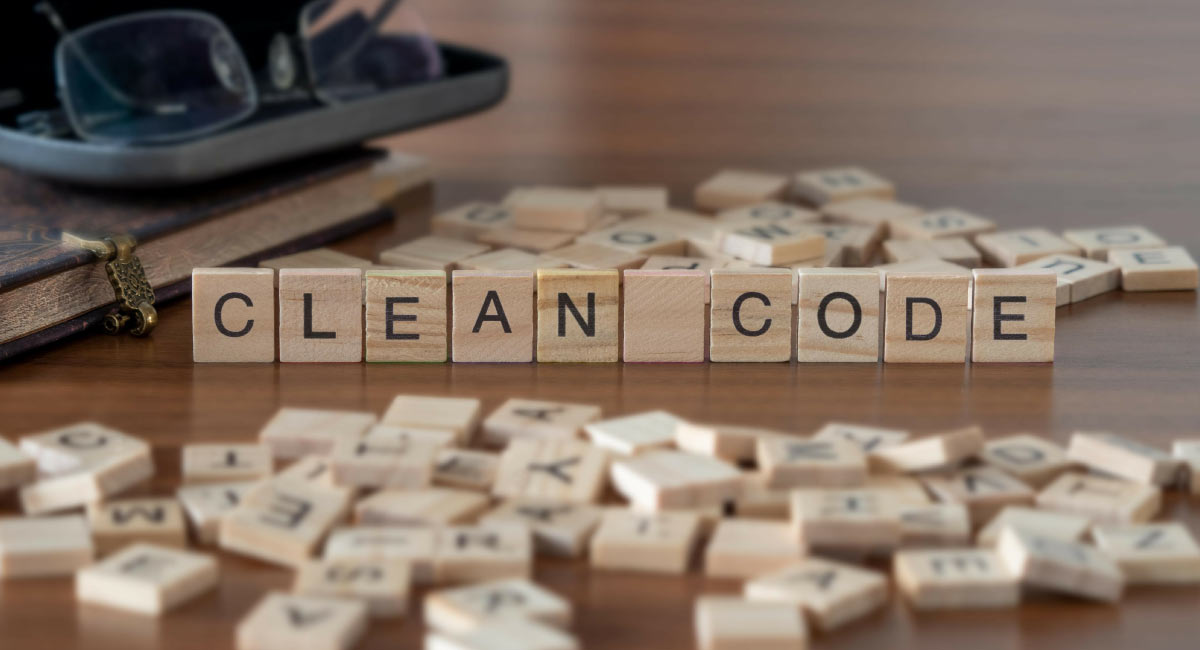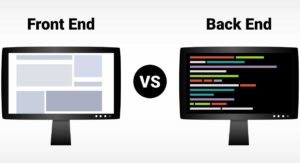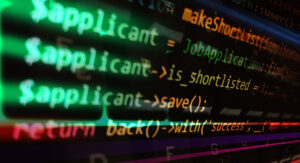In the ever-evolving world of software development, the importance of writing clean code cannot be overstated. It’s the foundation for building robust, reliable, and maintainable software. As we dive into the concept of clean code principles, we’ll explore what clean code is and why it’s crucial for developers across all levels of expertise. Understanding and applying these principles can significantly elevate the quality of your work and streamline the development process. A great place to start learning top coding principles is through an online web development bootcamp.
What Is Clean Code?
Clean code encapsulates more than just well-written lines of code. It represents a comprehensive approach to software development that prioritizes readability, simplicity, and elegance. A clean codebase is easy for developers to understand, modify, and extend. It adheres to established conventions and best practices, ensuring that code is functional, aesthetically pleasing, and intuitive.
Robert C. Martin, also known as Uncle Bob, is a prominent advocate for clean code. He defines clean code as code written by someone who cares about the craft of coding. According to Martin, clean code should be direct, efficient, properly structured, and, importantly, readable by computers and humans.
Also Read: A Guide to Software Engineer Interview Questions
Why Is Clean Code Important?
The significance of clean code extends beyond individual preference or aesthetic appeal; it has practical, tangible benefits in the software development lifecycle. Here are a few reasons why clean code matters:
- Enhanced Maintainability: Clean code is inherently easier to maintain and update, reducing the time and resources needed for future modifications.
- Improved Readability: Clean code is easy for new developers to understand and contribute to a project without a steep learning curve.
- Increased Efficiency: Well-organized codebases are less prone to bugs and issues, facilitating a smoother development process and quicker troubleshooting.
- Better Collaboration: Clean code principles encourage practices that make collaborative work more seamless, allowing teams to work more effectively together.
Clean Code Principles
Adopting clean code principles involves more than following a checklist; it’s about cultivating a mindset that values quality and clarity. Here are some foundational principles:
- Meaningful Names: Use descriptive, specific names for variables, functions, and classes that clearly convey their purpose.
- Keep It Simple, Stupid (KISS): Avoid unnecessary complexity. Aim for simplicity in your solutions.
- Don’t Repeat Yourself (DRY): Minimize duplication in your codebase to ensure that every piece of knowledge has a single, unambiguous representation.
- Single Responsibility Principle (SRP): Each module, class, or function should have one reason to change, encapsulating a single responsibility.
- Readability Over Cleverness: Code should be straightforward and easy to read rather than overly clever or complex.
Also Read: Understanding Front-end vs. Back-end Development: Career Guide 2024
How to Write Clean Code
Writing clean code is an iterative process that involves constant refinement and adherence to best practices. Here’s how you can start:
- Refactor Regularly: Review and refine your code to improve its structure and readability.
- Follow Style Guidelines: Adhere to your language’s style guidelines and conventions for formatting and structuring your code.
- Code Reviews: Participate in code reviews to receive feedback and learn from others’ approaches to problem-solving.
Clean Code Best Practices
To further embed clean code principles in your development process, consider these best practices:
- Write Unit Tests: Ensure your code is testable and covered by unit tests to maintain functionality and prevent regressions.
- Document Thoughtfully: While clean code should be self-explanatory, judicious use of comments can clarify complex logic or decisions.
- Use Version Control Wisely: Leverage version control systems to manage changes and collaborate more effectively with others.
Tips to Write Cleaner Code
Enhancing the cleanliness of your code is a continuous journey. Here are some tips to guide you along the way:
- Start Small: Focus on improving one aspect of your code at a time.
- Learn from the Masters: Study code from experienced developers and open-source projects to see clean code principles.
- Practice, Practice, Practice: Like any skill, writing clean code gets easier with practice. Challenge yourself with new problems and projects.
Conclusion
Clean code principles are essential for developing high-quality, easy-to-read, maintain, and extend software. By embracing these principles, developers can create code that performs well and is a pleasure to work with. Remember, writing clean code is not about rigidly following rules but about consistently striving to improve the clarity and quality of your work. As you integrate these principles into your daily development practices, you’ll find that clean code becomes second nature, leading to more successful projects and a more rewarding coding experience.
If you want to boost your coding skills, taking an immersive and collaborative online full stack web development program is a great place to start. This nine-month post graduate program consists of live online classes, masterclasses, hands-on projects in interactive labs, and more. Upon completion, you will earn a certificate to share with potential employers.
Frequently Asked Questions (FAQ)
1. What are the rules of clean code?
The rules of clean code are guidelines and best practices designed to help developers create code that is easy to read, understand, and maintain. While not exhaustive, key rules include:
- Meaningful Names: Choose names that clearly and accurately describe the purpose of variables, functions, and classes.
- Simplicity: Aim for the simplest solution possible. Complex solutions are harder to maintain and understand.
- Don’t Repeat Yourself (DRY): Avoid duplication in your code. Each piece of knowledge should have a single representation in the codebase.
- Single Responsibility Principle (SRP): Each component should have only one reason to change, encapsulating its responsibilities tightly.
- Keep it Small: Functions and classes should be kept small and focused. Large blocks of code are harder to understand and maintain.
- Readable Code: Code should be written as if it were prose, allowing others to understand its purpose and function without requiring comments.
- Automated Testing: Write tests for your code to ensure it works as expected and facilitates safe refactoring.
2. What are the conditions for clean code?
Clean code is conditioned upon several key factors that contribute to its effectiveness and quality:
- Clarity: The code must be clear and straightforward, allowing others to understand its purpose and logic easily.
- Consistency: The use of naming conventions, code structure, and formatting should be consistent across the codebase.
- Efficiency: While writing clean code, it’s important to ensure that it is readable and efficient in terms of performance.
- Maintainability: The code should be easy to maintain, allowing easy accommodating of changes or fixing of bugs without extensive rework.
- Testability: Clean code should be accompanied by a comprehensive suite of tests, making it easier to verify functionality and refactor confidently.
3. Why is clean code important?
Clean code is crucial for several reasons:
- Maintainability: Clean code is easier to maintain and update, saving time and resources in the long term.
- Efficiency: A well-organized codebase is less prone to bugs, making the development process smoother and more efficient.
- Collaboration: Clean code facilitates better collaboration among team members by ensuring everyone can easily understand and contribute to the codebase.
- Scalability: Clean principles support the creation of code that can easily grow and adapt to new requirements without significant rewrites or technical debt.
4. Is clean code a skill?
Yes, writing clean code is a skill that developers acquire and refine over time. It encompasses a deep understanding of coding principles, design patterns, and best practices combined with experience applying these concepts in real-world scenarios. Like any skill, it requires practice, continuous learning, and peer feedback. Developing the ability to write and apply clean code principles significantly enhances a developer’s effectiveness and ability to contribute to high-quality, sustainable software projects.
You might also like to read:
What Do Coders Do and What Kind of Coder Salary Can You Expect?
React Developer Tools: A Comprehensive List
What Does a Coder Do? A Beginner’s Guide






